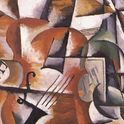During repeated lockdowns, the phrase “the internet is taking over our lives” feels less like a metaphor and more like a statement of fact. Even before the pandemic, though, the proportion of time we spent on the internet was on a steady incline. And the distinction between real life and life online was already getting vague—increasingly, it’s all just life.
For a long time, novelists depicted the internet only in passing, or avoided it altogether. Maybe it felt too frivolous to render artistically, like doing an oil painting of a PlayStation. Or else it was too difficult to write about in a way that wouldn’t date horribly. Websites go offline, social media companies rise and fall, even the words we use for the internet go out of style at a perilous rate. The New English Library Book of Internet Stories, released in 2000, features such dorky outdated titles as “imagination dot com.”
Some feared the internet might destroy the novel altogether. In 2012, author Toby Litt worried that the internet was both too boring and not boring enough for literature to thrive; that “the human race is no longer sufficiently bored with life to be distracted by an art form as boring as the novel” and that, at the same time, “watching someone at a computer is dull.” Best, many writers have thought, just to leave it out.
Back in the 1980s, writing about the internet was primarily done through speculative science fiction. William Gibson’s 1984 cyberpunk masterpiece Neuromancer was rich with a sense of excitement about the possibilities, good and bad, that would come with living in a computer-connected world. Later came a steady stream of novels about Silicon Valley, such as Microserfs by Douglas Coupland (1995), Dave Eggers’s The Circle (2013), and Joshua Cohen’s Book of Numbers (2015), which includes reams of transcribed code, breathless litanies of the types of porn available online and queasy elisions of male genitals and charging cables. Much less common, until recently, were novels that tried to engage with how a normal person, not involved with Big Tech, might experience humdrum online life.
It always takes literature a while to catch up with new technology. The letter was integrated seamlessly into the early novels of the 18th century, and indeed works like Samuel Richardson’s Clarissa and Fanny Burney’s Evelina actually took epistolary form. This made sense as letters are fundamentally a literary form as well as a communicative technology. Letters also took time to arrive, which meant they did not pose the same threat to novel plots as something like the invention of the telephone. Long before handwringing about the internet, writers were conspicuously leaving telephones out of their work. Sherlock Holmes almost never uses one. As for television, as late as 1990—in his essay “E Unibus Pluram”—David Foster Wallace still felt it necessary to exhort young novelists to tackle it.
But the internet isn’t so much one more new communication technology as a new dimension in which we live. So much of human experience is now mediated by screens that it seems stubbornly archaic for novelists not to acknowledge it, especially since the internet has become something we hold in our pockets. As Richard Seymour reports in The Twittering Machine, some 88 per cent of smartphone users spend “a quarter of their waking lives” on their devices.
The internet, and social media especially, have given us so much that is terrible: trolls, the rise of the alt-right, fake news, Donald Trump and so on. But we all know this. What a handful of recent novels—particularly Patricia Lockwood’s No One Is Talking About This and Lauren Oyler’s Fake Accounts, both just published—have done instead is to explore why and how we are using it anyway.
Writers depicting the internet face a formal challenge. How do you marshal the sprawling, chaotic lattice of the online world into a broadly linear, tightly structured form? Olivia Laing opted in 2018’s Crudo for a stream-of-consciousness style littered with references to ultra-contemporary news events. Another emerging approach is the fragmentary form that appears in Jenny Offill’s Weather (2020) and also now in Lockwood’s book: narratives built up of short, loosely connected paragraphs that read as though you are scrolling through social media.
But it’s a style that writers seem to have an uneasy relationship with. Oyler’s Fake Accounts addresses this point. “Why would I want to make my book like Twitter?” her novelist protagonist asks. “If I wanted a book that resembled Twitter, I wouldn’t write a book; I would just spend even more time on Twitter.”
It is probably true that we don’t want to read books exactly like Twitter. Social media offers a highly simplified form of storytelling, an initially more addictive pleasure than the slower, deeper ones of literature. The point is not to enact a sort of warped Turing test in which the writer tries to mimic a computer as closely as possible. But the style doesn’t render things exactly like a Twitter feed and it does, in my view, get to something true about the way the internet has affected our minds.
Some contemporary authors have chosen to write unmediated instant message exchanges into their novels. Sally Rooney’s Conversations with Friends and Ben Lerner’s Leaving the Atocha Station both render the tonal intricacies of this mode of communicating in a way that takes such exchanges, and their consequences, as seriously as face-to-face conversations. Anyone who has ever stood on the street frozen to the spot having an argument via text message knows how serious these communications can be, and yet it still feels revolutionary to see them depicted in fiction.
But however it is approached stylistically, writers can no longer duck exploration of the porous boundaries between online and offline life. When the lonely woman in Olivia Sudjic’s 2017 Sympathy becomes increasingly obsessed with a writer called Mizuko she stalks online, she begins to feel that “the solid world… the reality of it, is starting to slide away.” People begin to behave in real life as they would online—Sudjic’s protagonist, Alice, considers leaving a social situation she finds awkward without saying anything, in the way that you can shut your laptop. People also begin talking in the ironic vernacular of the internet—with disconcerting effects. In No One Is Talking About This, the protagonist’s brother relates a story about a friend of his who has “terrible internet poisoning”: “the other day he says to me, Saw my daughter’s tits on the ultrasound. Looked pretty good! And I was like Damn, dude, really? And he just gazed far off into the distance and said I don’t know how to act. I’ve been this way so long, I don’t know how to be anymore.”
In every recent novel depicting the internet I have read, the issue of not knowing who to be any more was central. Sudjic’s protagonist is so unsure of her identity that she wants to absorb Mizuko’s attitudes she sees presented online: “The way she saw and spoke about things was the exact way I wished I could see and speak about things.” Oyler’s novel is about a woman who discovers that her boyfriend secretly runs a conspiracy theory Instagram account, and after his sudden death is haunted by who he really was. Laing, meanwhile, filches the identity of a real person, the late American writer Kathy Acker, for her fictional protagonist.
There is a tension between this internet anxiety over identity and the pressure social media imposes on people to curate self-confident versions of themselves. “So many people,” writes Oyler, “just telling, just saying, just wanting to say, just screaming, just whispering, in all lowercase letters, in all caps, with punctuation, with no punctuation, with photos, with GIFs, with related links, Pay attention to me!” At the same time, social media is making us more homogenous. Lockwood’s protagonist knows that every day, her shared attention with the other people also online “must turn, like the shine on a school of fish, all at once, towards a new person to hate,” but that this conformity is a comfort of a kind. The “portal” (her word for the internet) was a place where “she did not read the wrong writers, was not seized with the surges of enthusiasm for the wrong leaders.”
We have never had more information available to us, but contemporary novelists are wise to the fact that too much information is toxic. In Weather, Offill’s protagonist relates “something stupid” she did one night: “I read an article about a person who received a face transplant, and now I know exactly what happens if you shoot yourself in the head when you are eighteen and somehow live.”
The internet, at least as presented here, threatens to turn people either into computers or animals: less human, at any rate. Sudjic’s Alice “buffers” on the sidewalk; in Lockwood, “the cursor blinked where her mind was.” Lockwood, Offill and Oyler all compare being online to the famous lab experiment where rats receive pellets of food as reward for clicking a button. We have dozens of ways to communicate instantaneously, and yet we have never been so disconnected. In 2018’s Break.up, which depicts a woman dealing with the end of a relationship that took place mostly online, Joanna Walsh writes about this paradox: “Connectivity is my resting place… where I am connected I am at home, but the net renders me foreign, is always talking about something going on elsewhere, outside its limits. And each click displaces me further down its routes and branches.”
In The Twittering Machine, Seymour argued that the desire to post on social media is a warped form of the death drive—a desire to be away from real life. Social media did not invent depression, but to read these novels is to understand that it has contributed to a depressive mode in modern life. Oyler’s protagonist describes a half-hearted suicidal ideation that begins while she works for a new media website: “I didn’t mean that I wanted to actually end my life but that I wanted to enact something drastic that would eliminate all my tedious problems.”
Still the characters in such novels cannot log off. Time slips past them as they languish in the dead zone of swiping. Oyler’s protagonist looks at her computer so much she “often felt sick, refreshing Twitter constantly between attempts at reading articles or sending emails,” an affliction that Lockwood describes as a “metastasis of the word next, the word more.”
There is a point on which Oyler and Lockwood diverge significantly, however, and where Lockwood’s novel excels. The protagonist of Fake Accounts hates spending so much time online. Lockwood gets at something difficult to render well: the pleasure, and the humour, to be found on the internet. Lockwood’s writing has always juxtaposed the poetic and beautiful with the absurd, dumb shit of life, a bathetic mode probably born out of being on the internet so much: “‘What are you doing?’ her husband asked softly, tentatively, repeating his question until she shifted her blank gaze up to him. What was she doing? Couldn’t he see her arms full of the sapphires of the instant? Didn’t he realise that a male feminist had posted a picture of his nipple that day?”
The internet—despite its nightmarish, addictive qualities, its labyrinths containing the worst depravity of which humans are capable—has given Lockwood’s protagonist joy. It was her escape from herself into something greater: “She wasn’t trapped, rooted in her provincial ignorance and her regional mispronunciations, pinned in one place.” “Why had she entered the portal in the first place?” Lockwood asks. “Because she wanted to be a creature of pure call and response: she wanted to delight and be delighted.”
No One Is Talking About This manages to be a book that acknowledges both the pleasure and the pain of being online. What makes it a book that will resonate well beyond the circle of people addicted to Twitter, though, is what happens in the second half of the novel. For all the ephemeral pleasures the internet brings, the information you really want, the key to the great mysteries of existence, will never be found there. When it seems like her sister’s newborn daughter is about to die, Lockwood’s protagonist leaves “the portal.” Some things don’t belong online: “She knew that as you scrolled you averted your eyes from… the ones who were in mad grief, whose mouths were open like caves with ancient paintings inside.”
One of the fragments in this half of the novel is a list of internet searches:
I miss my son who died
I miss my son so much quotes
I miss my son in heaven
My son died and I miss him
Missing my son sayings
The internet may contain clues about the most profound human experiences, but it does not hold those experiences themselves. This is why the novel will survive the internet. As critic Stephen Marche put it recently, “In a world of total information, the essence of the human will become what is not information, and the essence of intimacy will be in sharing what cannot be shared over the networks.”












